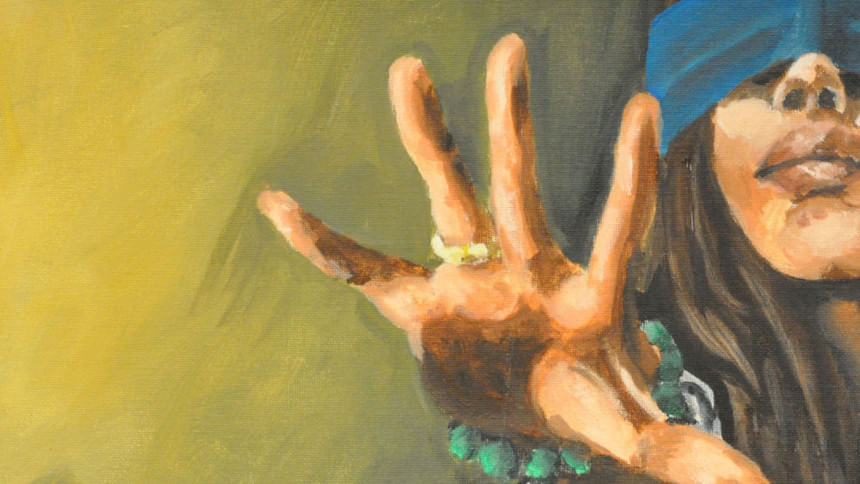When ignorance is the pillar of knowledge

The recent textbook fiasco has been a textbook case of how a dot becomes a circle. First we ignored the quality of teachers. Then we ignored the quality of students. There have been rumours that schools were being asked to liberally grade examination papers so that the greatest number of students could get the highest possible marks. Then we had the rude awakening that only a tiny percentage of these high achievers could actually cross the threshold of university admission tests. Now comes the fat in the fire. Textbooks are scandalously riddled with so many errors that one has to question the purpose of education itself.
There's always an explanation for everything, and the National Curriculum and Textbook Board (NCTB) surely has one. It has quickly formed a special committee to investigate the matter. Meanwhile, the government has already started distributing more than 362 million copies of textbooks among 42.6 million pre-primary, primary and secondary students. God knows how the NCTB plans to correct so many mistakes when so many books must have already gone out.
Never mind the additional costs involved in cleaning up this mess. The stock market has mopped up billions of taka. The banks have squandered tonnes of money. Many projects have had humongous cost overruns, ending up spending double or triple their initial budgets. We have so much appetite for waste that one more wasteful case is just another drop in the bucket.
Indeed that's nothing compared to how much it's costing our commitment to education. The textbook tragedy enunciates that we're handling one of the most delicate businesses in our life less carefully than glassware and dishes in our kitchen sinks. The goofed-up textbooks are scary proof that in this country ignorance is the pillar of knowledge.
So, the spelling mistakes and questionable illustrations, not to speak of poor printing in some of these textbooks, give us a chastening glimpse of the declining standard of our education. If we can't get things right at the beginner's level, imagine what it should tell us about the quality of higher education. If a little learning is a dangerous thing, we're dangerously learning too little.
Utilitarianism is an ethical system that determines morality on the basis of the greatest good for the greatest number. Our education system is zealously driven by a caricature of that philosophy, laying more emphasis on quantity than quality. The high percentage of students graduating under relaxed grading has deluded us like someone wearing loose-fitting clothes indulges in the satisfaction that he has lost weight.
What has happened with these textbooks isn't rocket science. Those who wrote the contents were wrong from the start. If the word "heart" appeared in place of "hurt", that's probably how those writers knew it was spelled. If the illustration shows a goat climbing a mango tree, it hovered in the twilight zone between fact and fancy. Keen minds argue it will teach children a false thing because goats don't climb trees. A sympathiser has claimed that it was meant to be funny so that children were also amused while learning. Eighty-five intellectuals of the country have signed a statement stating that the textbooks also clearly show a compromise with fundamentalist beliefs.
One would like to think that a significant initiative costing billions of taka must have had its checks and balances. The writers wrote, editors edited, proofreaders scrutinised, and then a higher body must have signed off before all those books went to printers. If some of the pages turned out fuzzy or the binding was faulty, a quality assurance team should have detected those anomalies before final printing.
All the layers responsible for the production of the textbooks were either dreadfully negligent or equally ignorant. Ironically, NCTB appointed a committee to investigate, not before, but after the disaster has taken place. Had the editors monitored the writers, those who signed off contents monitored the editors, and some other body monitored the printers, this botched situation could have been avoided.
Forgotten is that education is neither lottery nor charity, but something that must be earned with hard work. Somewhere in our experiment with education, we have lost that message. Not too harsh to claim that we may have altogether given up on education.
What remains is a certificate-spitting process that whets our lust for credentials than our thirst for knowledge. We have miserably failed education at once in its backward and forward linkages. Our schools swarm with ill-fated slaves, who carry the burden of books made ever heavier with sciolism and ignorance.
Meanwhile, education has been eviscerated. Those who make policies, draw up curricula, design study materials, teach and study, they make a daisy chain of a zero-sum game, in which everyone else's gain has cumulatively bankrupted the ultimate beneficiaries: the students. Our nation is thriving at the expense of its children.
The writer is Editor of the weekly First News and an opinion writer for The Daily Star. Email: [email protected]

 For all latest news, follow The Daily Star's Google News channel.
For all latest news, follow The Daily Star's Google News channel. 



Comments